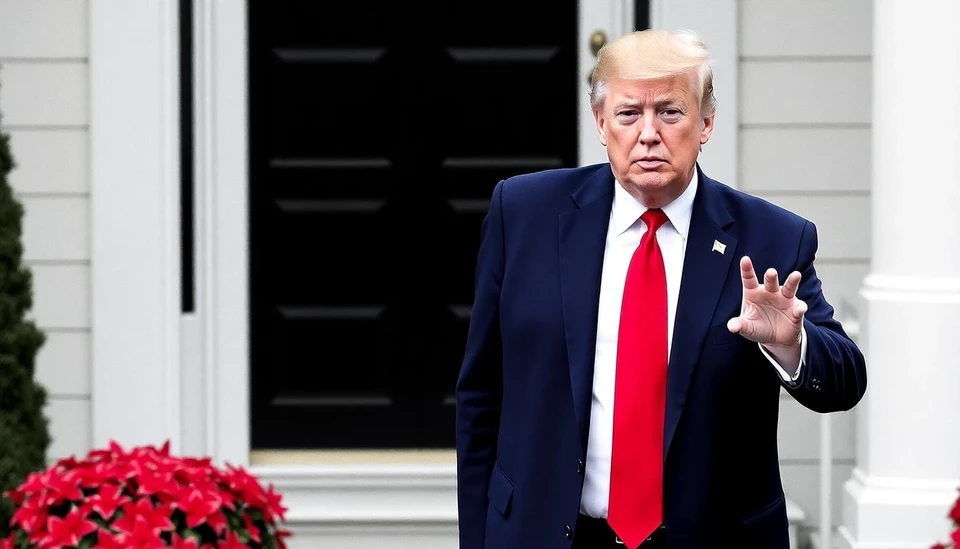
Former President Donald Trump has made headlines once again, announcing his intention to dismantle what he labels the “Green New Scam” if he regains the presidency in the upcoming elections. His remarks come amid growing scrutiny of the Biden administration's climate initiatives and increasing concerns over the economic impact of these policies on American households and businesses.
During a rally in Ohio, Trump outlined a bold vision that includes rolling back the comprehensive climate policies enacted under President Joe Biden, which he argues have led to higher energy prices and economic instability. "We will put America first and allow our energy sector to thrive without unnecessary regulations," Trump stated, rallying support from a crowd that echoed his sentiments.
The former president’s plan involves not only rescinding existing regulations related to emissions but also reining in federal funding allocated for green energy projects that are part of the broader Green New Deal initiatives. This approach resonates with many of his supporters who prioritize traditional energy sources such as fossil fuels over renewable energy investments.
Trump's assertion that the Green New Deal is a "scam" aims to rally conservatives and those skeptical about climate change policies by appealing to their concerns about taxation and government spending. His administration previously promoted energy independence using coal, oil, and natural gas, claiming that such measures are essential for driving down costs for consumers.
However, the journey to dismantle existing climate policies will not be straightforward. Experts and political analysts note a myriad of obstacles ahead, including regulatory frameworks established during Biden's tenure that are designed to be resilient against rapid changes in administration. Legal challenges, state-level regulations, and shifts in public opinion toward climate action may further complicate Trump's ambitious plans.
Moreover, a key aspect of the current political landscape is the ongoing concern over climate change among the younger electorate. Surveys show that many young voters prioritize environmental issues, and their growing numbers could be crucial for future elections. This presents a nuanced dilemma for Trump and others in the GOP, who need to balance their base with broader voter sentiment about climate policies.
As the election cycle progresses, the debate over the effectiveness of climate policies versus economic growth is expected to intensify. With the stakes higher than ever, Trump's propositions, while electrifying for some, may very well face strong pushback both in the courts and from the American public at large.
As we approach November 2024, Trump's campaign will likely face extensive scrutiny regarding its sustainability and public acceptance, particularly as the complexities of climate change become increasingly apparent to a broader audience.
In summary, Trump’s aggressive stance against the Green New Deal sets the stage for a pivotal discussion leading into the next election. Voters will need to assess not just the implications of a potential rollback of climate policies but also the larger ramifications on the economy and the environment.
As the debate unfolds, it remains to be seen how effective Trump’s strategy will be in aligning his vision with the expectations of a changing electorate.
#Trump2024 #GreenNewDeal #ClimatePolicy #EnergyIndependence #Election2024 #BidenAdministration #Economy #AmericanEnergy
Author: Megan Clarke




